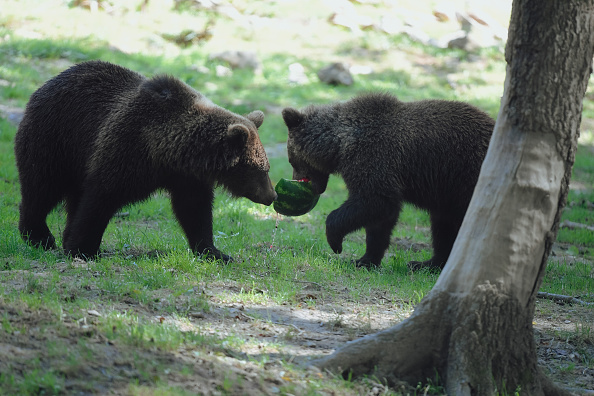The Slovak government has approved plans to shoot 350 brown bears and declare a state of emergency in most of the country’s districts following the suspected fatal mauling of a man near the central town of Detva.
The move, announced on Wednesday, comes amid rising tensions over the growing bear population and increasing reports of attacks on humans.
The cabinet, led by Prime Minister Robert Fico, endorsed the proposal from Environment Minister Tomáš Taraba days after the remains of a 59-year-old man were discovered in a forest just outside Detva. According to police spokesperson Petra Kováčiková, the man had been reported missing on Sunday evening and was found lifeless about two hours later by search teams, including more than 40 members of the security services and family.
Authorities reported “visible external injuries,” with media reports citing a “devastating injury” to the head. The JOJ television station and the State Nature Conservancy have identified a bear attack as the likely cause of death, though a forensic autopsy is pending to confirm the exact cause.
In response, Minister Taraba announced sweeping measures to reduce the country’s bear population, which he claims has grown far beyond sustainable levels. Citing a 2019 joint study by Slovak and Czech conservationists that estimated the population at between 1,012 and 1,275 bears, Taraba argued that current numbers are much higher and that 800 bears would be sufficient for ecological balance.
“Since 2019, the population has multiplied. Slovakia will approach preventive shooting as it is in Romania,” he said, adding the cull would exclude national parks and be carried out with the involvement of regional authorities.
Taraba defended the plan as necessary for public safety, saying the country has long ignored the escalating issue. Last year alone, Slovakia recorded nearly 1,900 encounters between humans and bears, the highest in recent memory. He also claimed that existing efforts, including targeted culling in 2023, had failed to curb the rise in attacks. “This is a long-neglected problem that cannot be solved overnight,” he said.
The decision has reignited long-standing protests from conservationists. Environmental groups have opposed large-scale culls, arguing that human-bear coexistence must be managed through non-lethal means and that reducing the population may not decrease the number of encounters.
Opposition politicians also questioned the government’s strategy, pointing out that attacks had not declined despite recent culls.
In June 2023, Slovakia’s Parliament passed legislation allowing exceptions to the bear’s protected status in areas where they pose a threat to human life, property, crops, or livestock. However, for a lethal response to be approved, the government must declare an emergency in the affected area. Wednesday’s decision to extend emergency status to most of the country clears the way for wider culling efforts.
The State Nature Protection of the Slovak Republic recently published guidance on how to avoid bear encounters. The agency urges visitors to travel in groups, be noisy while moving through wilderness areas, and avoid hiking at dawn or dusk when bears are most active.
In the event of a close encounter, people are advised to remain calm, speak loudly but steadily, back away slowly, and avoid running or making sudden movements. If attacked, the agency recommends using bear spray or, if unarmed, lying face down and protecting the head and neck until the bear retreats.






